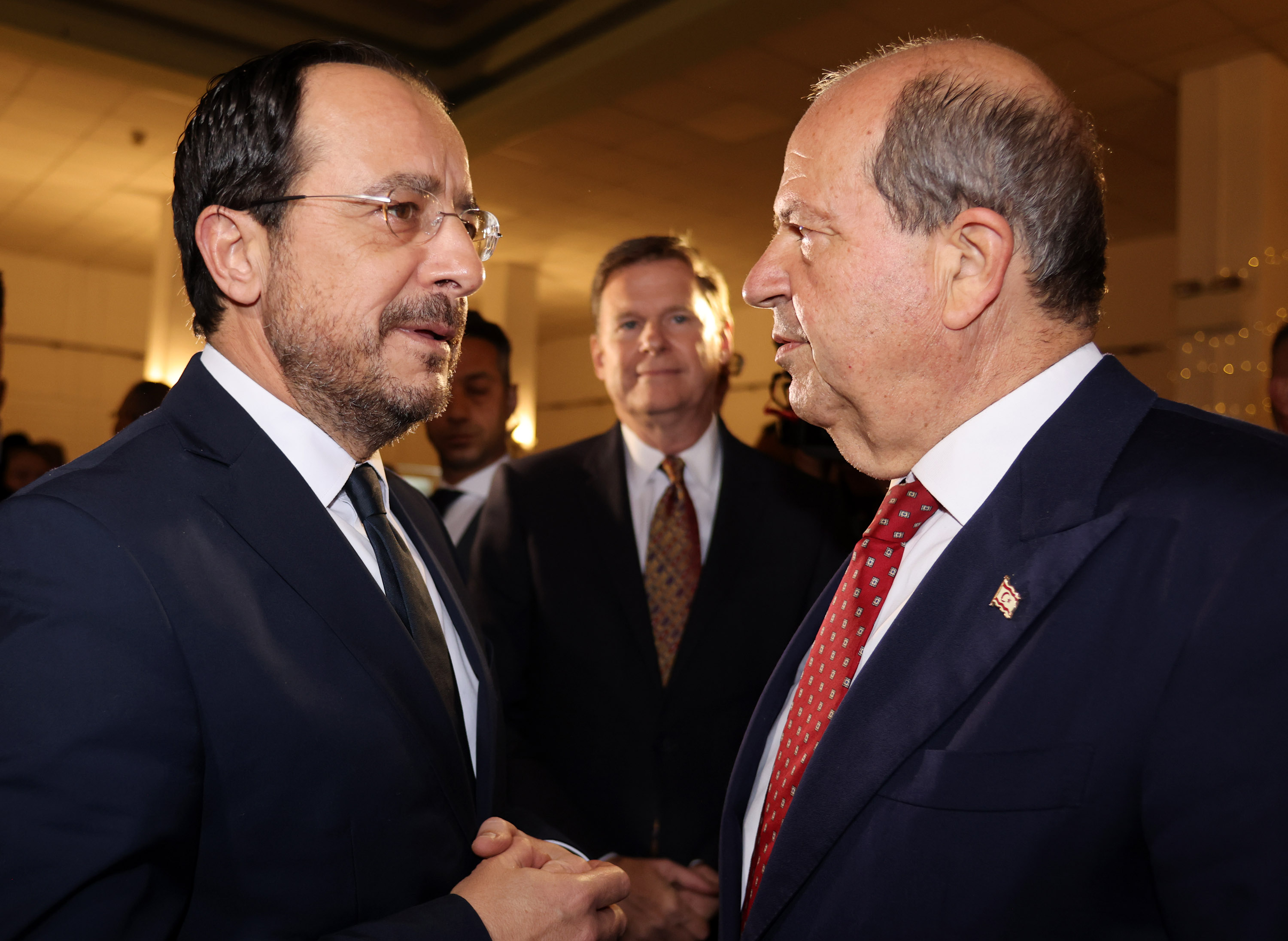MEP Fidias Panayiotou managed to incur the wrath of the political establishment once again by visiting the Turkish Cypriot leader Ersin Tatar at his new ‘presidential’ office for an interview. All the pro-government parties, led by government spokesman Konstantinos Letymbiotis, issued disparaging statements about Panayiotou, who was dismissed as a “pawn and tool of Turkish diplomacy”, who was “performing a ‘lewd’ act against the country,” and engaging in “the humiliation of national dignity.”
Letymbiotis gave a free rein to his moralising, informing us that “the political essence of this action exceeds the personal choices of each one of us, touching the core of sensitivities of our national problem.” We were already “witnessing an attempt by the pseudo-state at instrumentalisation of this action which violates the resolutions of the UN Security Council. How it violates the resolutions, Letymbiotis did not explain. Was Panayiotou the first MEP to have visited a Turkish Cypriot leader in his office?
Tatar, meanwhile, took full advantage of this reaction, urging Panayiotou to ignore the threats and make the interview public. He also said he would report this “suppression of freedom of thought and expression.” One Turkish Cypriot newspaper asked “how are we going to make a deal with such a mentality,” and it was a legitimate question. In less than a fortnight the two leaders are scheduled to meet in New York as part of a UN process aimed securing a resumption of peace talks, our government is attacking an MEP who met and interviewed the Turkish Cypriot leader?
Surely, the Christodoulides government that is so committed to securing the resumption of settlement talks, should support every contact between the two sides that could lead to a thaw in the frosty relations which have prevented agreement even on the opening of a crossing point. Even if there was just a one per cent chance of Panayiotou’s meeting with Tatar, stumbling on a way forward, the government should have supported it rather than condemned it.
The government, however, remains stuck in the bygone era of the Cyprus problem, a time when any meeting of a foreign official with the Turkish Cypriot leader was condemned – if attempts to block it failed – as a violation of international law. It was always claimed that such meetings would lead to the recognition of the pseudo-state, something that has yet to happen. Although Panayiotou will not assist the recognition of the pseudo-state he is being accused of having become a tool of its propaganda.
What has really assisted Tatar’s propaganda was the government’s knee-jerk reaction to the meeting and the condemnations of the MEP by the anti-settlement parties which support the government. Tatar is already using the hostility generated against Panayiotou for the meeting to back his argument that the Greek Cypriot side is not really interested in a settlement and that two states is the only option. It is difficult to argue otherwise, when we cannot tolerate Cypriot politician meeting the Turkish Cypriot leader.






Click here to change your cookie preferences